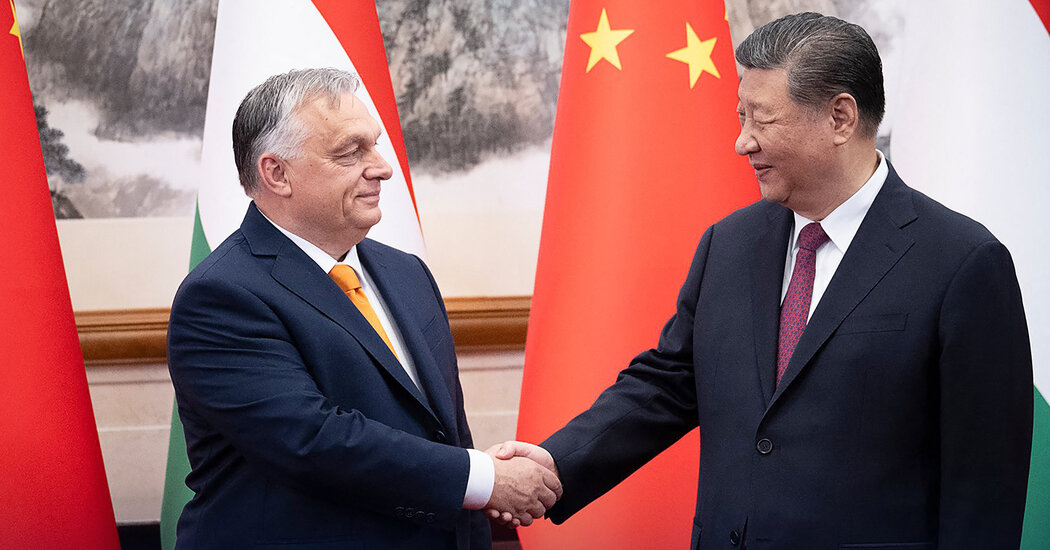Hungary’s Prime Minister Viktor Orban recently made headlines for his visit to China, where he met with Chinese President Xi Jinping. This meeting comes just days after Orban held talks with Russian President Vladimir Putin in Moscow, highlighting Hungary’s strategic positioning in global politics.
Orban’s visit to China marks a significant moment in Hungary’s foreign policy, as the country seeks to expand its economic ties beyond the European Union. During his meeting with Xi, Orban discussed various issues, including trade, investment, and cooperation in areas such as infrastructure and technology. The two leaders also signed several agreements aimed at strengthening bilateral relations between Hungary and China.
Orban’s visit to China comes at a time when Hungary is facing increasing criticism from Western countries over its close ties with Russia and China. Critics argue that Orban’s government has been moving closer to authoritarian regimes and away from Western liberal democracies. However, Orban has defended his foreign policy decisions, stating that Hungary must pursue its own interests and not be dictated by other countries.
Orban’s meeting with Xi also comes as China seeks to expand its influence in Central and Eastern Europe through its Belt and Road Initiative. Hungary has been a key supporter of the initiative, which aims to enhance connectivity and cooperation between China and countries along the ancient Silk Road trade routes. Orban’s visit to China is seen as a further endorsement of Hungary’s commitment to the initiative and its desire to deepen economic ties with China.
Orban’s meeting with Xi follows his talks with Putin in Moscow, where the two leaders discussed various issues, including energy cooperation and security. Hungary has been a vocal supporter of Russia’s Nord Stream 2 gas pipeline project, despite opposition from the European Union and the United States. Orban’s close ties with Putin have raised concerns among Western allies, who fear that Hungary’s alignment with Russia could undermine European unity and security.
Overall, Orban’s recent diplomatic engagements with China and Russia highlight Hungary’s complex foreign policy balancing act. As the country seeks to diversify its economic partnerships and assert its independence on the global stage, Orban’s government must navigate the competing interests of major powers while also addressing domestic concerns about democracy and human rights. Only time will tell how Hungary’s relationships with China and Russia will evolve in the coming years.


